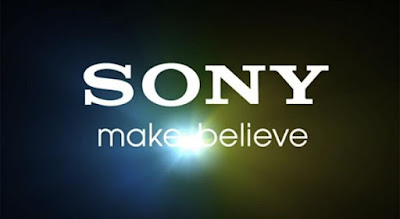Did Sony Once Create a Fake Film Critic to Praise Its Movies?
The Strange Story of David Manning, the Fictional Film Critic
 Quotes from film critics appear regularly in advertising to convince people to see movies. Even movies that most critics hate seem to be able to find at least one critic who exclaims that a movie is the "Funniest family film of the year!" or “The most heartwarming film of the summer!”
Quotes from film critics appear regularly in advertising to convince people to see movies. Even movies that most critics hate seem to be able to find at least one critic who exclaims that a movie is the "Funniest family film of the year!" or “The most heartwarming film of the summer!”However, even if those critics are being a bit dishonest in the hopes to see their name on a poster on Blu-ray packaging, at least they are real people.
Surprisingly, in one curious instance you couldn’t even make that argument – because believe it or not, two marketing executive at Sony once figured they'd just cut out the middleman and make up a critic to provide positive quotes for Sony’s movies.
Thus began the short career of phantom film critic David Manning of The Ridgefield Press, an actual weekly Connecticut regional newspaper. Starting in July 2000, Manning – reportedly named after an acquaintance of one of the executives, who was originally from Ridgefield – was quoted in advertising of six films released by Sony’s Columbia Pictures label: The Patriot (2000), Vertical Limit (2000), Hollow Man (2000), A Knight's Tale (2001), The Forsaken (2001), and The Animal (2001). In some cases, Manning’s bountiful praise was the only quote that appeared in a particular advertisement.
 In the days before Rotten Tomatoes or Metacritic, Sony got away with it at first.
In the days before Rotten Tomatoes or Metacritic, Sony got away with it at first.But Newsweek’s John Horn reported on June 2, 2001 that Manning was a complete fabrication. What revealed the ruse? According to one advertisement, Manning said “The producing team of Big Daddy has produced another winner!" about Rob Schneider's comedy The Animal. Horn was writing a story about controversial “junket critics” who give films positive reviews to bad movies in exchange for VIP treatment.
He used The Animal – a widely-panned movie by professional critics – as an example of such a movie. While researching the quotes used in the film’s advertising, he contacted The Ridgefield Press, who said they had never heard of David Manning, and then contacted Sony, who admitted to the deception. A Sony spokesperson told Newsweek it was "an incredible foolish decision, and we're horrified." Oddly, most of the other films that featured Manning's "quotes" received some positive reviews from real-life critics that could have been used in the advertisements instead!
Horn questioned why Sony even bothered creating a fake critic since even now it is a common practice for some critics – particularly those from lesser-known outlets – to praise even the worst films (for example, the website eFilmCritics compiles a yearly list of critics whose effusive praise of films goes overboard). Nonetheless, making up a critic entirely was considered a new low for Hollywood’s marketing departments.
The embarrassment from the Newsweek story was only the beginning of Sony’s problems with deceptive advertising. Two weeks later, Variety reported another Sony advertising scandal: The studio had use company employees to pose as audience members in commercials promoting The Patriot.
In the commercial, one of the employees called the action epic “a perfect date movie.” The revelation was another black eye for Sony’s marketing department, which had already quickly withdrawn the David Manning ads. Even though Sony argued that paid spokespeople are used in advertisements all the time, the use of employees posing as moviegoers was considered deceitful.
The controversy continued to haunt Sony years later. In 2004, two moviegoers from California filed a class action lawsuit against Sony, claiming that Manning's praise of A Knight's Tale was "intentional and systematic deception of consumers." Sony argued that the reviews were an example of free speech. The court rejected that argument since it was commercial speech that was not protected by the First Amendment – in other words, it was false advertising.
As a result of an out-of-court settlement in 2005, Sony had to refund $5 to all of those who joined the lawsuit (a total payout of $1.5 million) and had to pay the state of Connecticut a $325,000 fine as well.
So while you may not always agree with the views of movie critics as they criticize your favorite films, at least you now can confirm that they are actual human beings with independent opinions!
Posted By ZaptaiLo.BlogSpot.Com









Post a Comment